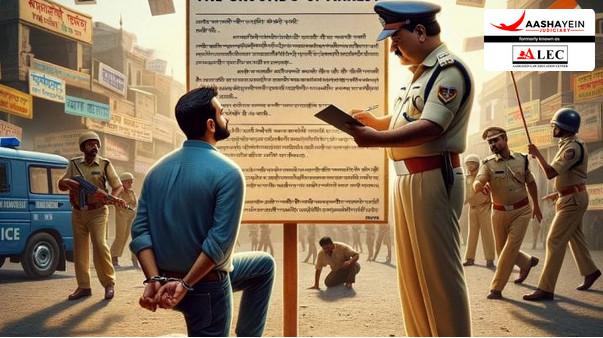Privacy Policy - Aashayein Judiciary
1. Introduction
Aashayein Judiciary ("we," "us," or "our") is committed to protecting the privacy of our users. This Privacy Policy outlines how we collect, use, disclose, and safeguard your information when you visit our website, alec.co.in (the "Site"), and utilize our services, including payments processed through Razorpay. By using the Site, you consent to the practices described in this policy.
2. Information We Collect
We collect information from you in various ways, including:
-
Personal Information:
-
When you register for an account, we may collect your name, email address, phone number, and other contact details.
-
When you make a payment through Razorpay, we collect information necessary to process the transaction, which may include your billing address and payment details.
-
When you communicate with us through email or other channels, we collect the information you provide.
-
Payment Information:
-
We use Razorpay, a third-party payment processor, to handle payment transactions. We do not store your full credit card or bank account details. Razorpay's privacy policy applies to the processing of your payment information. We only store transaction ID and transaction status from Razorpay for our records.
-
Usage Information:
-
We collect information about how you use the Site, including your IP address, browser type, operating system, and pages visited.
-
We may use cookies and similar technologies to collect this information.
-
Educational Information:
3. How We Use Your Information
We use your information for various purposes, including:
-
To process payments and provide our services.
-
To create and manage your account.
-
To communicate with you about your account, services, and updates.
-
To improve our Site and services.
-
To provide customer support.
-
To comply with legal obligations.
-
To track user progress in courses.
4. Sharing Your Information
We may share your information with:
-
Razorpay: To process payments and prevent fraud.
-
Service Providers: Third-party service providers who assist us with website hosting, data analysis, and other services.
-
Legal Authorities: When required by law or to protect our rights.
-
Business Transfers: In connection with a merger, acquisition, or sale of assets.
-
With your consent: In other cases, with your explicit consent.
5. Razorpay Privacy Policy
When you make a payment through Razorpay, your payment information is collected and processed by Razorpay in accordance with their privacy policy. We encourage you to review Razorpay's privacy policy to understand how they handle your information. You can find their privacy policy on the Razorpay website.
6. Data Security
We take reasonable measures to protect your information from unauthorized access, use, or disclosure. However, no method of transmission over the internet is completely secure. We cannot guarantee the absolute security of your information.
7. Data Retention
We retain your information for as long as necessary to provide our services and comply with legal obligations.
8. Your Rights
You have the following rights regarding your information:
-
Access: You can request access to the personal information we hold about you.
-
Correction: You can request to correct any inaccurate or incomplete information.
-
Deletion: You can request to delete your personal information, subject to legal obligations.
-
Objection: You can object to the processing of your personal information.
-
Restriction: You can request to restrict the processing of your personal information.
-
Data Portability: You can request a copy of your data in a machine-readable format.
To exercise these rights, please contact us at management@alec.co.in.
9. Children's Privacy
Our Site is not intended for children under the age of 13. We do not knowingly collect personal information from children under 13. If we become aware that we have collected personal information from a child under 13, we will take steps to delete it.
10. Changes to This Privacy Policy
We may update this Privacy Policy from time to time. We will notify you of any changes by posting the new Privacy Policy on this page. You are advised to review this Privacy Policy periodically for any changes.
11. Contact Us
If you have any questions about this Privacy Policy, please contact us at:
-
Email: management@alec.co.in
-
Address: 3rd Floor, Radhika Heights, 284, in front of APT House, Zone-II, Maharana Pratap Nagar, Bhopal, Madhya Pradesh 462011
-
Contact: +91 9691073595
12. Cookies and Tracking Technologies
We use cookies and similar technologies to collect information about your browsing activities. You can control cookies through your browser settings.
13. Governing Law and Jurisdiction
This Privacy Policy shall be governed by and construed in accordance with the laws of India. Any disputes arising under this Privacy Policy shall be subject to the exclusive jurisdiction of the courts located in Bhopal, Madhya Pradesh, India.
• This Privacy Policy shall be governed by and construed in accordance with the laws of
India. Any disputes arising under this Privacy Policy shall be subject to the exclusive jurisdiction of the courts located in Bhopal, Madhya Pradesh, India

